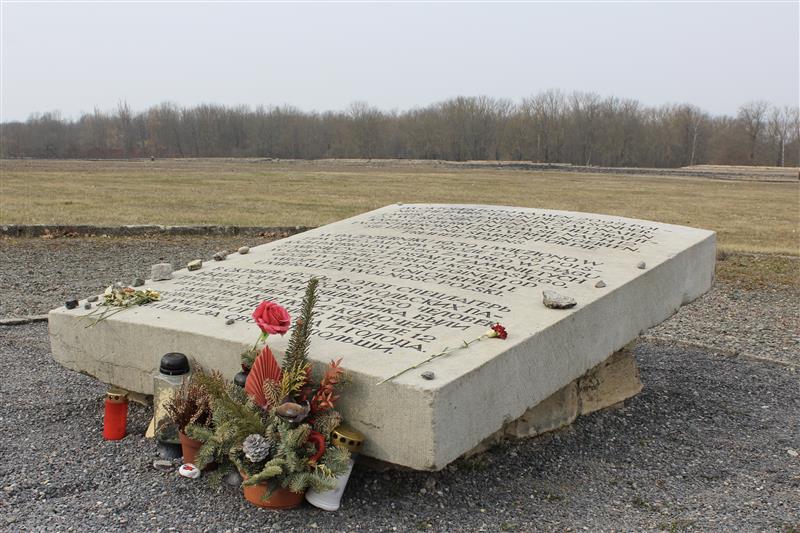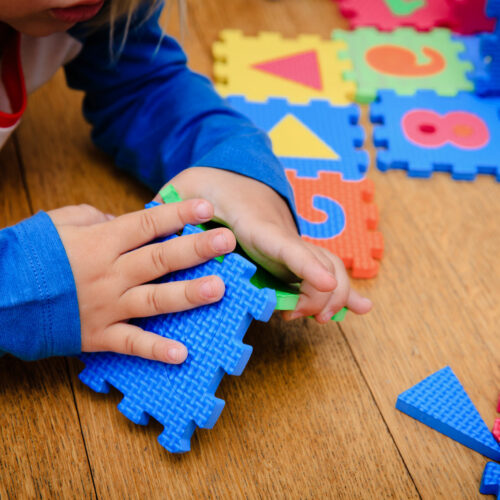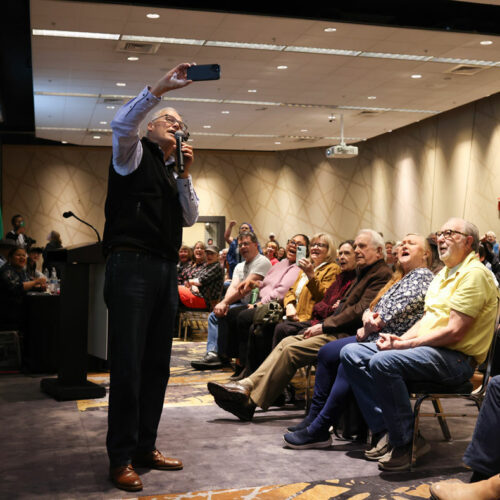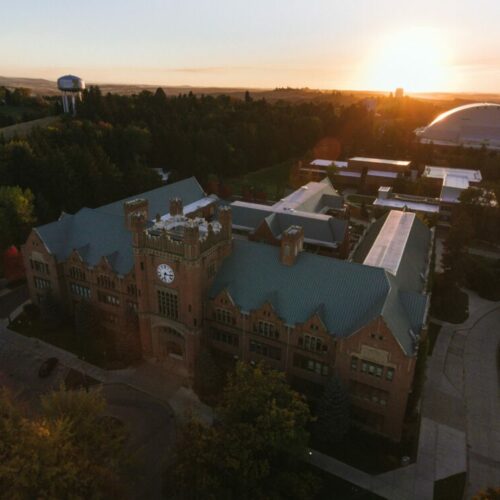
A voice from Buchenwald: How Murrow’s broadcast unlocked family history from the Holocaust
Listen
(Runtime 4:05)
Read
By Brooke Bovenkamp
Eighty years ago today, Edward R. Murrow delivered his landmark broadcast from the Buchenwald concentration camp, documenting Nazi atrocities for American audiences.
For Caroline Heller, this famous report wasn’t just history — it revealed a profound personal connection to her father’s past.
In her Massachusetts home, Heller reflected on a childhood shadowed by unspoken trauma.
“I felt enormously protective of my parents and I had no idea why, because my peers didn’t seem to be protective of their parents,” Heller said.
The one thing she knew for certain about her father: He was a close friend of Edward R. Murrow, the famed CBS correspondent.
“I knew that Edward R. Murrow was someone who had given me gifts when I was a baby, a little copper cup. That was kind of a gift you gave new people with new babies. So I knew Murrow was a friend of my father,” she said.
Murrow helped her father immigrate to the United States, found him a place to live and ensured his medical career could continue.
For much of her life, Heller didn’t understand why the pair’s bond was so strong.
And then, the pieces started to fall into place.
The crucial piece of the puzzle — a rebroadcast of Murrow’s report from Buchenwald in April 1945.
Heller remembered hearing it years later while living in Berkeley.
“My father’s name was mentioned. And I was dumbfounded. A friend called me that evening (and said) she had heard it, and then the director of the radio station replayed it for me,” Heller said.
Murrow had visited the camp the day after its liberation, and Heller’s father — Dr. Paul Heller — gave him a tour of the grounds.
“My father was in a building at the gates of Buchenwald that he had, as a young doctor, transformed into to isolate the (tuberculosis) prisoners and the other prisoners with communicable diseases, and he was called out to meet Murrow,” she said.
Heller only began to learn the full extent of her father’s experience when she discovered his diary in 1979, which he had written during a death march.
“I felt like — I’m experiencing it for the first time,” she said. “It was as though I knew nothing before this moment.”
Paul Heller, a political prisoner and doctor, endured several concentration camps: Dachau, then Buchenwald, Auschwitz, Gross-Rosen and then back to Buchenwald.
He compartmentalized his trauma, focusing intensely on his work as a physician and researcher.
“When he locked himself in his study upstairs, he stayed in his study for hours with the door closed and the air conditioner on whether it was cold or not,” she said. “I’m sure it was the sound that blocked out the world.”
The friendship between Murrow and Dr. Heller endured. The doctor visited Murrow on his deathbed.
“They had conversations about the degree to which everyone experiences some moments in hell, and that Murrow had seen my father’s, and now my father was seeing Edward R. Murrow in his moments of hell,” said Heller.
On his own deathbed in 2001, Heller’s father asked her to publish an excerpt of a memoir she had written about him.
“My father, in the very end, his eyes were closed, he said, in his still thick Prague accent, ‘Caroline, you should publish this somewhere,’” she said.
In 2015, she published her book, “Reading Claudius.”
“Your father’s a hero, and you know he’s not. He was a complicated guy. I don’t like anyone turning him into anything he isn’t,” Heller said. “He was a very good man underneath all that trauma.”
—————————————————–
Brooke Bovenkamp is a senior at the Edward R. Murrow College of Communication at Washington State University. She traveled to Buchenwald through the college’s Backpack Journalism Program.















